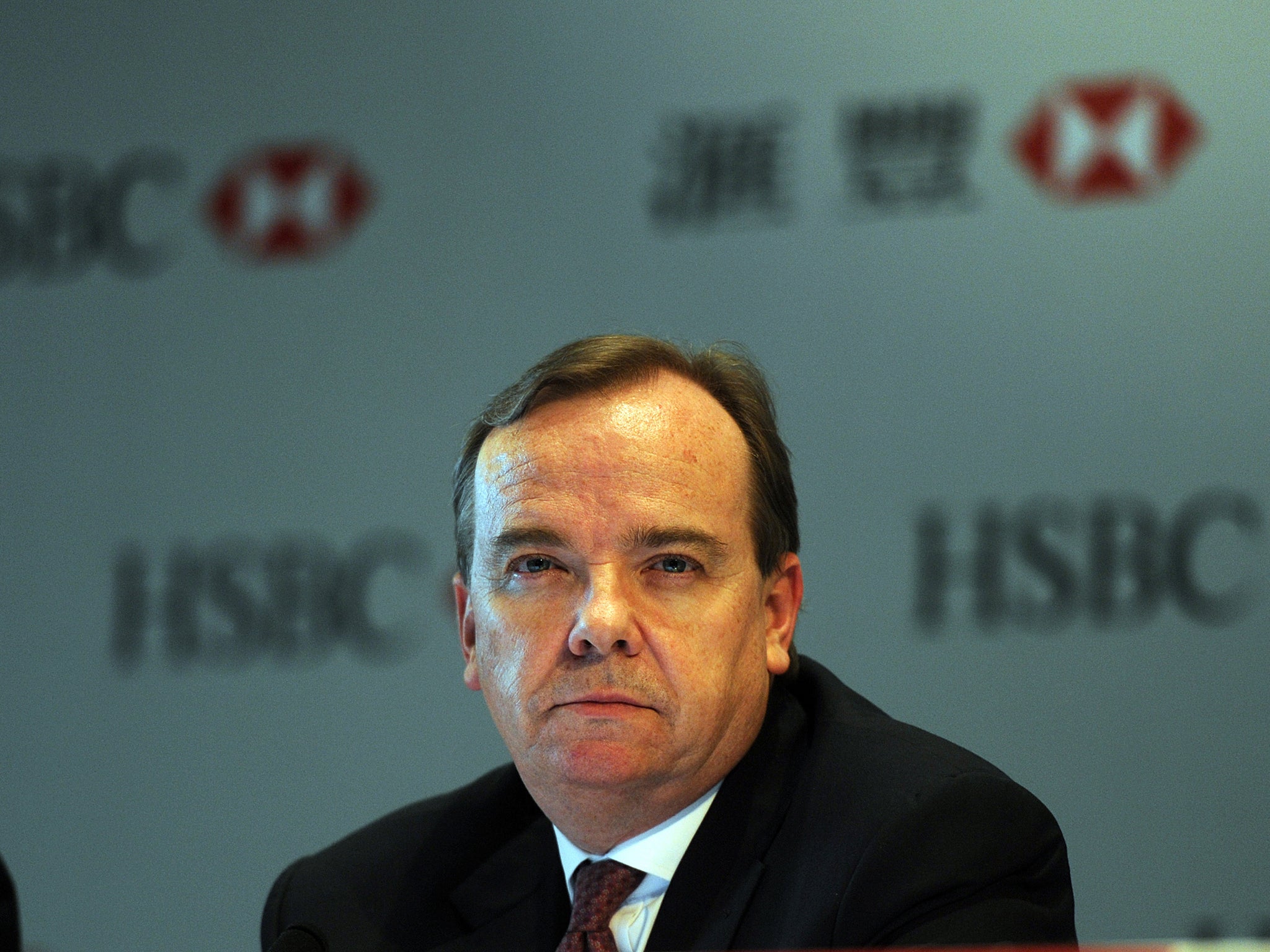Questions, questions... but HSBC still won’t give a straight answer
Outlook: The bank, all of a sudden, has become the injured party

The word from HSBC is that nothing has changed. The debate about the location of the headquarters? Not put about by us, guv. It’s been re-heated by others, specifically our shareholders.
When our chairman Douglas Flint responds to their questions by saying the situation will be reviewed “as soon as the mists lift sufficiently”, he’s only saying what he said a few weeks ago, when we released our final results. So move along, nothing to see here.
Please… The thing to remember is that what Mr Flint said when those results were released was deliberately equivocal. And what he said this time, in response to a question from a single investor in Hong Kong, was similarly equivocal: “We are beginning to see the final shape of regulation, the final shape of structural reform and as soon as that mist lifts sufficiently, we will once again start to look at where the best place for HSBC is.”
HSBC knew that question was coming and so was able to craft the message it wants you to hear, which is that when the bank does start to look at this issue, it probably won’t be favourable to London – particularly if the next UK government tries to raise any more tax from the bank.
This duly produced a flurry of reports about HSBC departing these shores, along with Standard Chartered, with lots of comment from unnamed investors combined with the odd named analyst and consultant after a spell in the limelight. Which is just what HSBC wanted.
The bank, all of a sudden, has become the injured party, taxed to the hilt by rapacious British politicians keen to get their hands on the vast profits it makes in Asia.
The furore over chief executive Stuart Gulliver’s pay? Funnily enough the debate over that seems to have taken a back seat. So has (for the moment) the discussion about the disgraceful conduct of the bank’s Swiss unit with regard to helping its wealthy clients dodge tax.
With the fires from the latter still burning bright – the French are prosecuting and others will follow – what Mr Flint ought to have said was that a discussion about the headquarters is off the table. We’ve an awful lot of work to do to get this business shipshape, and to deal with the regulatory issues as a result of our past conduct.
Instead he chose to chart a rather more cynical course. Given the way HSBC has carried on, that’s not altogether a great surprise.
But, but, but – it’s our investors who are raising the issue!
Here’s the thing, HSBC has a large and diverse shareholder base. With a diverse range of views about its future. The bank can, in effect, pick and chose which ones it pays attention to and which ones it ignores.
Which is why you will get an equivocal response to questions about the headquarters. And a rather less equivocal response to some equally pertinent questions. Questions about whether this bank has become too big to manage. And whether it wouldn’t be better off breaking itself up before questions about the headquarters are addressed.
Dave Lewis became CEO of Tesco last September
Time for Tesco’s Dave Lewis to spend some goodwill
Tesco’s impending results are going to be all about goodwill. The writing down of it will be the prime cause of the enormous loss the grocer is set to report. But the use of the reserves built up by chief executive Dave Lewis will be where the interest lies.
It’s no secret that Tesco has issues with its balance sheet. It’s not making the sort of money it used to make and its debt has been downgraded to junk status by the ratings agencies, which makes it more expensive to borrow. Analysts are increasingly fretting about the size of its pension deficit, which the former house broker puts at close to £5bn.
All this has led to speculation about a rights issue. Tapping your shareholders for cash is a risky move, because they don’t tend to be very forgiving if you make promises on which you don’t deliver. Such a step wouldn’t leave Mr Lewis with much room for error.
Which is why he might be keener on exploring alternatives, such as selling off some of Tesco’s non core businesses, first. Such a plan is hardly risk free, and forced sellers tend not to do all that well when it comes to price.
Despite formidable headwinds Mr Lewis has engineered a mini-revival, even showing some positive sales growth.
Mr Lewis may not get a better chance than this. He currently has the backing of the City. He should use some of the goodwill he’s built up.
The Jockey Club is racing towards a showdown
The Jockey Club is an anachronism. A private company overseen by a group of aristocrats, it has nonetheless proved to be highly successful – not to mention innovative, even progressive, when it comes to issues ranging from financing to its customer offer.
All this is paying off when it comes to the bottom line. Turnover is at a record level, and continues to grow at a decent clip. The profits generated have facilitated a substantial contribution to racing prize money.
The only cloud on the horizon is that the bookmaking fraternity will have taken note. The question they’ll doubtless ask is if the Club is so successful, why does it need so much of our money to keep the horses in training?
Subscribe to Independent Premium to bookmark this article
Want to bookmark your favourite articles and stories to read or reference later? Start your Independent Premium subscription today.

Join our commenting forum
Join thought-provoking conversations, follow other Independent readers and see their replies